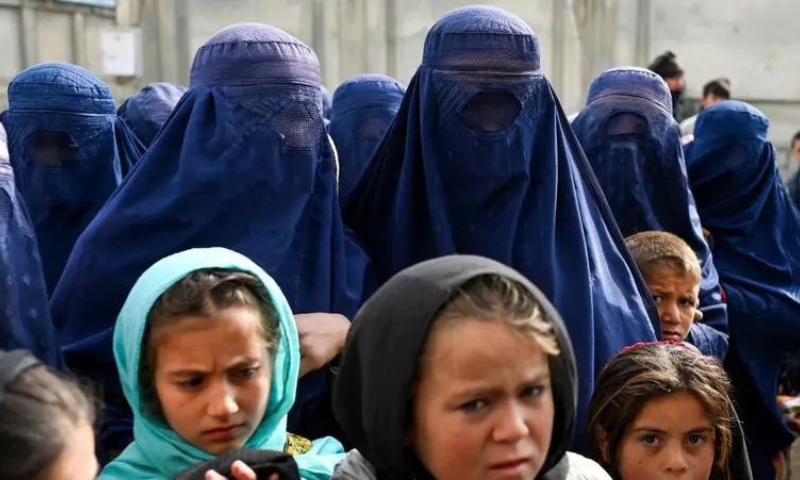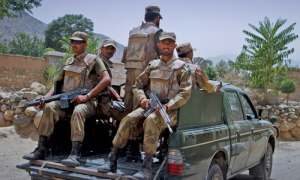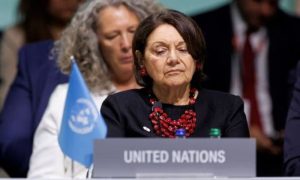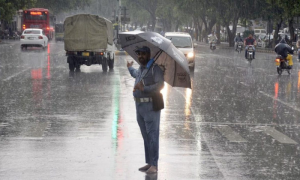GENEVA: A young girl from Taliban-run Afghanistan provided a rare and anonymous testimony to the United Nations Human Rights Council on Tuesday, describing life under the regime as akin to “slavery.”
The girl, identified only as Laila, appeared in a video recording where her face was hidden, with only the outline of her headscarf visible. She recounted the stark contrast between life before and after the Taliban regained power nearly three years ago.
“Before that, women and girls were free,” Laila said. “But now we are not free. We are like slaves.” She likened Afghan girls to “birds with broken wings,” striving to find opportunities to “fly as high as they can.”
Since the Taliban returned to power in 2021, they have implemented a strict interpretation of Islamic law, severely restricting women’s rights. Women and girls have been banned from secondary schools, universities, public parks, and certain types of work.
The United Nations has labeled the situation in Afghanistan as “gender-based apartheid.” Taliban authorities claim their laws adhere to Islam and guarantee all citizens’ rights under Sharia law.
Richard Bennett, the UN Special Rapporteur on the rights situation in Afghanistan, addressed the council, stating that the violations against women and girls were “so severe and extensive” they could constitute crimes against humanity. “The Taliban’s institutionalization of its system of gender oppression should shock the conscience of humanity,” he asserted.
Last year, UN Women Executive Director Sima Bahous highlighted the dire conditions, noting that suicidal thoughts were pervasive among Afghan women. Laila’s testimony echoed this, recounting that several women she knew had taken their own lives after being beaten by men for allegedly not wearing a “proper hijab.”
“I’m sure that it’s an excuse, because girls are really afraid. They always try to wear black, a scarf, black coat, everything,” she said. Laila expressed her constant fear of being captured by security forces, wondering, “Do they kill me?”
She also shared her concerns about her future, being confined at home and helping her mother instead of attending school. “This is not my future,” she insisted. “I lost many opportunities in my life… I face depression and I feel helpless.” Despite this, Laila remained determined: “I didn’t give up, and I will never give up. I want to have a bright future. I want to become a leader. I want to become the voice of all Afghan girls.”
Laila appealed to the international community for support, especially in education and employment for Afghan women and girls. “I beg them to keep supporting the girls and women of Afghanistan,” she said.
Shafiqa Khpalwak, an Afghan poet, writer, and rights activist living in exile, also addressed the council, urging international action. “In the eyes of the Taliban, we are nobody,” she said. “We continue to resist for our rights, and we ask you to stand with us and be on the right side of history.”























